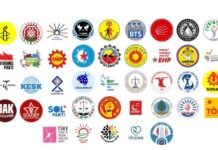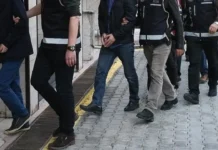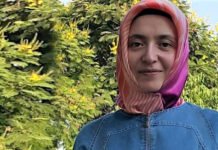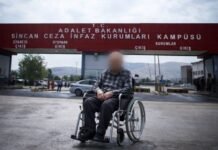A total of 232 schools run by the faith-based Gülen movement across 21 countries have been taken over by the Turkish government since a coup attempt in July 2016, Turkish Minute reported, citing the state-run TRT Haber.
The schools were transferred to Turkey’s Maarif Foundation.
Maarif, which was established prior to the coup attempt on July 15, 2016 through legislation in the Turkish parliament, has targeted the closure of educational institutions established by followers of the Gülen movement since the abortive putsch as part of the foreign policy of Turkey’s ruling Justice and Development Party (AKP), which labels the movement as a terrorist organization and accuses it of orchestrating the failed coup.
The Gülen movement, a worldwide civic initiative inspired by the ideas of Muslim cleric Fethullah Gülen, strongly denies involvement in the failed putsch and any terrorist activity.
TRT Haber reported on the Gülen-linked schools taken over by Maarif since the failed coup on the occasion of the eighth anniversary of the coup attempt on Monday.
According to the report, 223 schools seized by the Turkish government were located in countries in Africa and Asia, while five were in north and south America and five in Middle Eastern countries.
Professor Birol Akgün, the president of Maarif, told TRT Haber that the government aimed at “clearing” Gülen-linked schools abroad of “terrorism” just like those operating in Turkey following the coup attempt, where hundreds of Gülen-linked schools were closed by the government.
He said Maarif had assumed an important responsibility for the “nationalization” of those schools and has been working with the foreign ministry and the relevant state agencies since then in order to ensure the takeover of Gülen-linked schools abroad.
TRT Haber said the seizure of Gülen-linked schools in foreign countries has not only diminished the movement’s influence in those places but also helped Turkey wield its own influence.
Akgün said Maarif is replacing the administration and teachers in every Gülen-linked school it takes over and implements its own “educational concept” in coordination with the education ministries of the relevant country.
Although the Gülen-linked schools are now described as “nests of terrorism” by the Turkish government, they used to receive great appreciation from the AKP government and its officials in the past for their academic success and role in introducing Turkish culture and language to the world. They were promoted as “bridges of peace” for their role in the improvement of intercultural and inter-religious dialogue.
Many government officials used to visit these schools during their foreign visits and attended events organized by them.
The takeover of the Gülen-linked schools by Maarif led to protests from the students and their parents in many of those countries where the schools were praised for their academic achievements. The takeovers took place despite objections from students and their parents.
Since its establishment, Maarif has sparked controversy, receiving criticism for an increasing amount of funding from the state budget, while its area of operation has simultaneously expanded.
When the schools were run by the Gülen movement, they were funded by donations from the movement’s followers and did not depend on taxpayer money to maintain their operations.
The transfer of a large amount of funds to the Maarif Foundation for educational activities overseas has led to criticism given the fact that the Turkish education system is overwhelmed by problems, including an insufficient number of teachers, overcrowded classrooms and teachers waiting to be appointed but aren’t due to the lack of government resources.
Most Turkish teachers in the Gülen-linked schools abroad had to flee, fearing arrest or extradition to Turkey and took refuge in Europe, the US or Canada.















